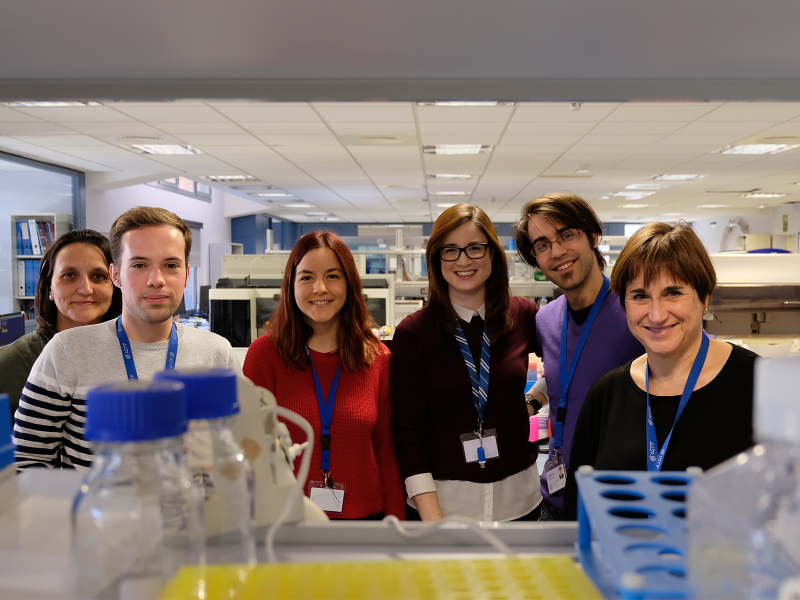Two therapies together are better than one in an experimental model of Type 1 Diabetes

The Immunology of Diabetes Group, led by Dr. Marta Vives-Pi, have published a paper in Scientific Reports on a successful combination therapy for a type 1 diabetes (T1D). In this study they continue their work on a drug that re-programmes pancreatic cells in mice with T1D), by combining it with an immunotherapy they have also developed.
The group's previously published work used artificial intelligence to identify liraglutide, a drug, already in use for other purposes, which is able to re-programme pancreatic cells and restore normal insulin production, although initial experiments showed that it did not prevent T1D, or promote normal blood sugar levels. This is important as patients can often suffer complications due to episodes of hyper- and hypo-glycaemia, which can worsen their quality of life and even shorten their life-span. Liraglutide alone is not enough.
"Several studies have tried combined therapies, but the results have been mixed," says Dr Adrian Villalba, the first author on the paper. "We decided to combine liraglutide with an immunotherapy, which our group has also developed." This therapy consists of tiny capsules called PSAB-liposomes, which contain specific molecules to correct autoimmunity against insulin producing cells. PSAB-liposomes can help the prevention and reversal of T1D in mice by re-educating the immune system, thus allowing the regenerative effect of liraglutide in beta cells.
"It seemed logical to combine these two different strategies," says Vives-Pi." Our research has shown that although liraglutide alone seems to speed up the appearance of T1D, but in combination with PSAB-liposomes as immunotherapy it helps to normalize blood-sugar levels. "What is more the group found that the two treatments did not interfere with each other, or produce changes in the populations of the different types of white blood cell involved in the immune response. We also found evidence that the treatment was producing a tolerance in the immune system for towards the pancreatic cells that it destroys in T1D," explains Vives-Pi. "This is very encouraging, T1D is a complex disease, which will require complex treatments and this combination has shown good results so far. We will continue our research and test it in larger studies," she concludes.
This work has been funded by Fundació La Marató de TV3 Diabetis i Obesitat 2015 (project 201632_10). CIBER of Diabetes and Associated Metabolic Diseases (CIBERDEM) is an initiative from Instituto de Salud Carlos III, Spanish Ministry of Science and Innovation. Staff have been supported by a Generalitat de Catalunya AGAUR grant.
Original Article
Villalba, A., Rodriguez-Fernandez, S., Perna-Barrull, D. et al. Antigen-specific immunotherapy combined with a regenerative drug in the treatment of experimental type 1 diabetes. Sci Rep 10, 18927 (2020). https://doi.org/10.1038/s41598-020-76041-1
